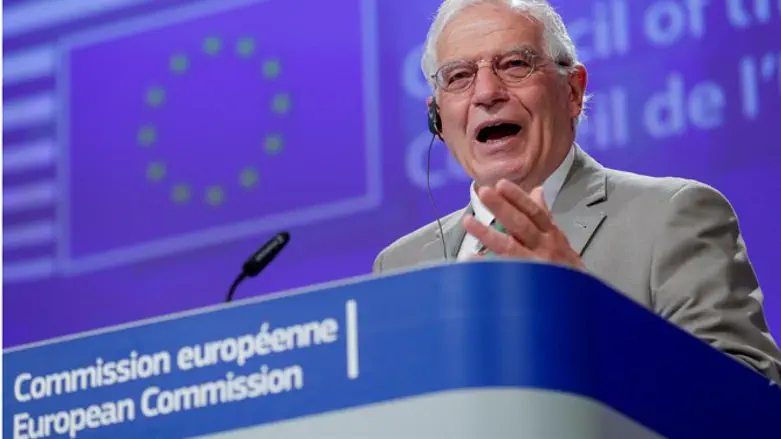
The EU will make a diplomatic push to try to stop Israel from going ahead with a plan to apply sovereignty over Judea and Samaria, the bloc's foreign policy chief, Josep Borrell, said Friday.
Borrell said the bloc would use "all our diplomatic capacities" to try to dissuade Israel's incoming government from going ahead with the move, according to the AFP news agency.
While EU countries are alarmed at the prospect of sovereignty, which they say would violate international law and harm the chances of peace, they are divided about what action to take against Israel.
"What everybody agreed is we have to increase our efforts and our reachout to all relevant actors in the Middle East...," Borrell said after the talks.
"We are ready to do that and we will do that in the next days using all our diplomatic capacities in order to prevent any kind of unilateral action," he added.
The push will involve talking to Washington and Arab countries as well as Israel and the Palestinians, Borrell said.
The coalition agreement between Prime Minister Binyamin Netanyahu and Blue and White chairman Benny Gantz states that the government could apply sovereignty to parts of Judea and Samaria this coming July.
Borrell recently warned Israel against applying sovereignty over portions of Judea and Samaria.
“The European Union reiterates that any annexation would constitute a serious violation of international law. The European Union will continue to closely monitor the situation and its broader implications, and will act accordingly,” he said.
Ahead of Friday’s meeting, Borrell had said the issue of sovereignty would be "the most important item on the agenda".
He added that he intends to talk to the new Israeli Foreign Minister, expected to be MK Gabi Ashkenazi of Blue and White, once appointed, and will congratulate the new Israeli government once sworn in.
Some EU countries have pushed for the bloc to take a hard line against Israel, with Luxembourg's veteran foreign minister Jean Asselborn in particular calling for the recognition of a Palestinian state.
But others have urged caution and dialogue with Israel, which is seen as an important EU partner in the Middle East.
"We are in a dialogue with the responsible parties, including in Israel," German Foreign Minister Heiko Maas said Friday, according to AFP.
"We have always made it clear... that we are committed to the goal of a negotiated two-state solution, and that we believe that annexations are not compatible with international law," he added.
(Arutz Sheva’s North American desk is keeping you updated until the start of Shabbat in New York. The time posted automatically on all Arutz Sheva articles, however, is Israeli time.)